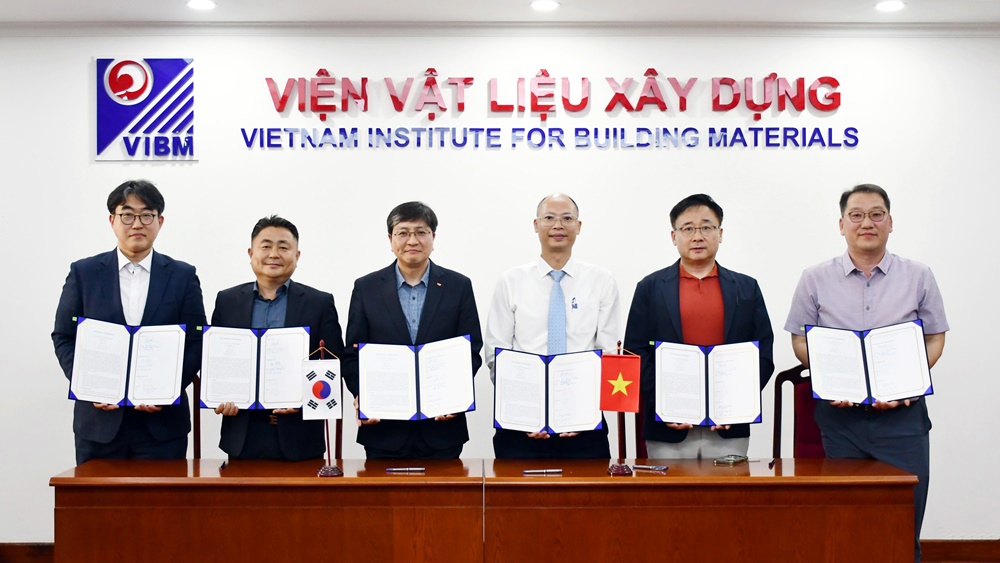HCMC – Vietnam has partnered with five South Korean firms to pursue eco-friendly methods for manufacturing cinder blocks.
The Vietnam Institute for Building Materials at the Ministry of Construction has inked cooperation agreements with SK Ecoplant, Grit C, KCMT, CMD Group and WITH-M-TECH on producing cinder blocks through environmentally friendly methods.
SK Ecoplant and Grit C introduced a cinder block production method using a value-added soil additive, humus. This additive developed by Grit C is widely used for constructing roads and buildings and for cinder block production.
Using humus for manufacturing cinder blocks would help reduce costs, mix with various input materials and not consume fossil fuels, aligning with the nation’s orientation toward reducing greenhouse gas emissions and sustaining economic development.
The signing of the cooperation agreements would lay the groundwork for both sides to research new technologies in cinder block production in the future.
The Government and the ministry have issued documents approving Vietnam’s construction material development strategy for 2021 – 2030, with a vision to 2050.
It stated that the nation would gradually phase out common burned clay bricks and replace them with cinder bricks to reduce carbon emissions, protect the environment and pursue sustainable economic development.
Vietnam now has around 4,000 burned clay brick manufacturing plants with a combined capacity of about 25 billion units annually. Their annual production is estimated at about 60-70% of the total capacity.
Meanwhile, there are 2,500 cinder block manufacturers nationwide, with a combined capacity of 15 billion units per year. However, their annual production reaches merely over half of the total capacity.









